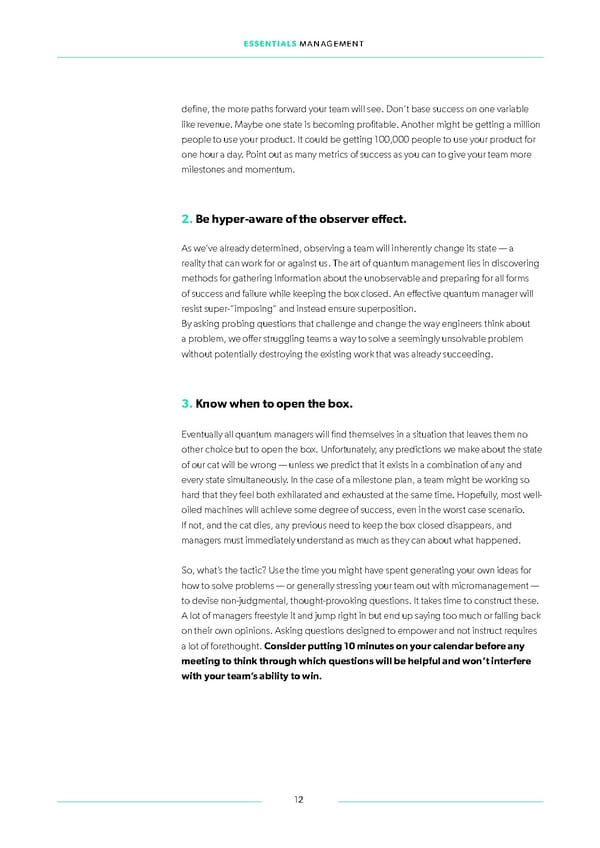ESSENTIALS MANAGEMENT deifne, the more paths forward your team will see. Don’t base success on one variable like revenue. Maybe one state is becoming proiftable. Another might be getting a million people to use your product. It could be getting 100,000 people to use your product for one hour a day. Point out as many metrics of success as you can to give your team more milestones and momentum. 2. Be hyper-aware of the observer effect. As we’ve already determined, observing a team will inherently change its state — a reality that can work for or against us. The art of quantum management lies in discovering methods for gathering information about the unobservable and preparing for all forms of success and failure while keeping the box closed. An effective quantum manager will resist super-“imposing” and instead ensure superposition. By asking probing questions that challenge and change the way engineers think about a problem, we offer struggling teams a way to solve a seemingly unsolvable problem without potentially destroying the existing work that was already succeeding. 3. Know when to open the box. Eventually all quantum managers will ifnd themselves in a situation that leaves them no other choice but to open the box. Unfortunately, any predictions we make about the state of our cat will be wrong — unless we predict that it exists in a combination of any and every state simultaneously. In the case of a milestone plan, a team might be working so hard that they feel both exhilarated and exhausted at the same time. Hopefully, most well- oiled machines will achieve some degree of success, even in the worst case scenario. If not, and the cat dies, any previous need to keep the box closed disappears, and managers must immediately understand as much as they can about what happened. So, what’s the tactic? Use the time you might have spent generating your own ideas for how to solve problems — or generally stressing your team out with micromanagement — to devise non-judgmental, thought-provoking questions. It takes time to construct these. A lot of managers freestyle it and jump right in but end up saying too much or falling back on their own opinions. Asking questions designed to empower and not instruct requires a lot of forethought. Consider putting 10 minutes on your calendar before any meeting to think through which questions will be helpful and won’t interfere with your team’s ability to win. 12
 Essentials Management First Round Capital Page 11 Page 13
Essentials Management First Round Capital Page 11 Page 13